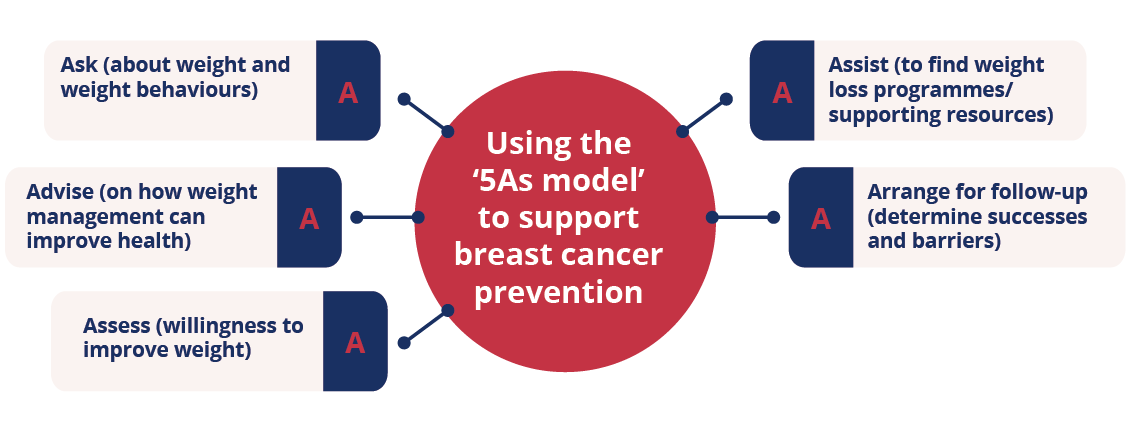
Welcome to SABCS 2020

SABCS 2020 at a glance
In response to the COVID-19 global pandemic, the 43rd SABCS took place on a new virtual congress platform from the 8th to the 11th December 2020. This year’s meeting continued the tradition of bringing together breast cancer researchers and clinicians from around the world, providing a virtual format to present new and late-breaking data on the experimental biology, aetiology, prevention, diagnosis, and therapy of breast cancer, along with premalignant breast disease. SABCS is the premier event for researchers, health professionals, and those with a special interest in breast cancer and this year included more than 40 oral presentations in four general sessions. Also included were commentaries from expert discussants, as well as poster sessions consisting of short audio overviews from the authors. Co-Chair Carlos L. Arteaga, Dallas, USA, opened the meeting and welcomed attendees.
Recent advances in breast cancer prevention
Melinda Irwin, New Haven, USA, explored whether now is the right time to implement lifestyle interventions in the oncology clinic to prevent breast cancer. Just as no single breast cancer treatment is appropriate for all patients, no single prevention strategy is suitable for disease prevention. The most effective way to reduce breast cancer risk is via prophylactic surgery with mastectomy reducing the incidence of disease by at least 90%, even in those individuals with BRCA1/2 mutations.
However, while prophylactic mastectomy is a highly effective approach for the prevention of breast cancer, it is not often deemed acceptable by the patient. A variety of less drastic approaches from lifestyle intervention to vaccines are being developed to support the prevention of breast cancer. Dietary risk factors remain the leading cause of all-factor mortality in the USA, with 14 types of cancer being associated with obesity, including breast, and 13 cancers associated with low levels of physical activity. However, the underlying mechanisms linking obesity and cancer are poorly understood.

Using the '5A model' to support breast cancer prevention
Lifestyle behaviours can affect three pathways that influence breast cancer:
• Oestrogen • Insulin • Inflammation
Clinical trials demonstrated that a healthy diet and exercise can both produce clinically meaningful changes in biomarkers associated with cancer outcomes. Multiple randomised clinical studies have demonstrated that healthier patients – those individuals who are not obese and engage in regular physical activity, are less likely to develop cancer. In addition, cancer patients with healthier lifestyles are more likely to meet treatment goals for breast (and other) cancer. Improved breast cancer screening can also help.
“Nutrition, weight management, and exercise should all be included in a breast cancer prevention programme from the outset.”
Melinda Irwin, New Haven, USA
Powel Brown, Houston, USA, explored pharmacological approaches beyond hormones for breast cancer prevention and noted that it was now possible to prevent many breast cancers in high-risk women using anti-oestrogen hormonal drugs. Several phase III breast cancer prevention trials demonstrated that hormonal drugs such as the selective ER modulators tamoxifen and raloxifene, and aromatase inhibitors prevent the development of 50% of ER+ breast cancers in women. However, most women at high risk of breast cancer do not use these cancer preventive drugs due to concerns about their side effects. To overcome this problem, recent studies have focused on testing novel approaches for the prevention of breast cancer. Results of preclinical and clinical studies testing targeted drugs, including signalling inhibitors, combinations of preventive agents, and vaccines for breast cancer prevention show that it is possible to prevent breast cancer with reduced toxicity. Strategies targeting novel signalling molecules (HER2, mTOR, PARP), or the immune system using vaccines, are being tested in preclinical studies and early clinical studies. Multiple breast cancer vaccines are being tested, with data from the few trials that have been completed being generally positive with low rates of toxicity. Topical gels containing anti-oestrogen drugs, aimed at reducing breast cell growth and mammographic density, are currently being investigated in Phase II clinical studies. This topical approach has the potential to prevent ER-positive breast cancers without the toxicity of oral hormonal drugs. It is hoped that most, if not all, of these novel preventive measures will effectively prevent all forms of breast cancer with minimal toxicity.
“Prevention of breast cancer is certainly possible, but toxicity limits the use of current preventative drugs.”
Powel Brown, Houston, USA
Closing Remarks
SABCS 2020 was a successful meeting with attendees able to remotely access new data and clinical insights, and ‘virtually’ interact with clinical experts. This will hopefully stimulate new ways of thinking and ultimately translate into optimal care for the breast cancer patient. In addition, the virtual format provided the opportunity for participants, particularly those outside the US, to attend SABCS perhaps for the first time. This revised format for 2020 also enabled more institutions around the world to conveniently gain access to ‘on demand’ meeting content.